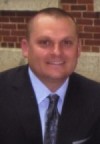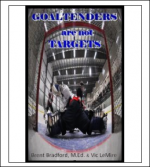A youth sports athlete’s image is a critical component to how he/she is perceived by others and could determine whether he/she gets the opportunity to compete at the collegiate or pro level.
This is Part 2 of a series of articles on How to Promote A Positive Self Image For Youth Sports Athletes to help gain self confidence and improve your self image.
If you missed Part 1, click here.
The Skill of Interviewing: Aspiring elite-level athletes will, undoubtedly, be faced with several interviews and other media contacts throughout an athletic career.
It is absolutely essential air jordan 3 black cement reimagined that athletes become aware of this important image element in the world of sports.
IMPORTANT NOTE: How many times have you watched an athlete make a complete fool of him/herself and/or his/her team, only wishing he/she could take back what was said?
It is imperative that athletes understand that once a statement is ‘on record,’ it is done and there is no taking it back.
ATTENTION ATHLETES: The athletic media is a very valuable part of sports and in particular, your career.
The media attention may be highly beneficial to your career, which might include possible endorsements and even sports media-related jobs once your athletic career has run its course.
Every aspiring elite-level athlete must watch, listen and study regular television interviews that athletes do prior to, during and after competitions.
In fact, a tremendous amount of learning can occur from observing and studying professional athletes’ interviews.
There are several basic interviewing skills that must be developed so that you will have less of a chance of putting your foot into your mouth!
Two, of the several, basic interviewing skills that can enhance an athlete’s image are as follows:
A) You vs. Your Team: Every interviewer will attempt to structure each question by asking about you and your performance in a competition.
That is totally fair, however, providing your inflated thoughts on your own performance will always get back to your teammates, coaching staff and other teams – guaranteed!
It will be very tempting to let everyone know how great you are, but that is the worst thing that can be verbally communicated.
The moment a reporter asks you about something you did, immediately reply by thanking him/her for the recognition … then redirect the question to focus on and to compliment a teammate, coach and/or your team’s performance.
An Example Question to a Hockey Goaltender: “You made a great save to preserve the shutout tonight! How did you stop that late, third period breakaway?”
Answer: “Thank you for that, but, it was actually (teammate’s name) who back-checked and caused just enough distraction to the shooter so that it made my job easier?
Our whole team blocked so many shots for me tonight and cleared the front of the net so effectively that I saw almost every shot! Also, my coaches have spent a great deal of their time working with me and their intense teachings have really made the difference in our successes!”
Four positive outcomes were accomplished with this answer to the reporter’s quality question:
- the response was directly related to the question
- the teammates will appreciate the compliments
- the coaches know that you are a good student of the game and are coachable
- the response assisted in the portrayal of an extremely strong image
ATTENTION ATHLETES: Your teammates will go through walls for you if they hear you respond to questions like the one stated in the example.
Your coaching staff will be comfortable with your progress knowing that they are part of your development.
Scouts will perceive you as a true team player (i.e., an important intangible on their rating nike dunk high blue satin scale).
B) Your Team vs. The Opposition: All sorts of interviews will ultimately make their way into the opposition’s locker room.
They will, undoubtedly, be posted and highlighted on the notice boards to infuriate your opposition prior to competition.
It is important to never say a single negative thing about the opposition. As a matter of fact, it is crucial that athletes go out of their way to compliment opposing players/athletes on several aspects of their team.
What do you think opposing players/athletes will think if they read an article in which you have made negative statements towards them?
ATTENTION ATHLETES: Keep your answers short, yet informative and always complimentary. Give the interviewers what they want, but do not get caught up with giving out more information than is required.
Learn to make the interviewer feel important and accomplished knowing deep down that you have the true agenda that will be discussed intelligently!
As you listen and begin to study sports interviews, you will begin to notice interview answers that become very repetitive in nature. This is a good thing!
The majority of elite-level athletes have learned to prepare basic stock answers and they have also learned how to guide the interviewer towards the type of questions they would like to be asked.
Interviewing is both a very important skill that must be learned and an honour should it be requested of you!
Always try to bring a positive attitude to the interview with several key points (e.g., teammates, coaches, etc.) that you eventually want to reveal before the interview is over.
Humour and levity will always exude confidence in your image and do quite well in an interview. Bring a smile and a laugh; facial features such as smirks or frowns will get you very poor reviews.
Of course, aspiring elite-level athletes must never use profanity of any kind as it will reflect negatively on their image.
Use polite language during the interview (e.g., speak every word as if it is a parent/guardian you are conversing with) and ensure the word ‘thank you’ is stated at the end!
Finally, at the end of any interview, do not ‘bolt away’ looking like you just could not wait to get the interview over with. Remember to always show Pratica e fresca t-shirt great respect throughout!
IMPORTANT POINT: A great interviewer will appreciate you as a great interviewee and will conduct the interview quickly with professionalism and consideration of your image.
On the contrary, the media will thrive on you if you provide the wrong appearance and provide a very controversial interview as witnessed in the many loud verbal outbreaks observed on TV in the past.
DO NOT become one of those You Tube viral videos!
AUTHOR BIOS:
Brent Bradford
 Academy Dean Chargers rookie WR Ladd McConkey reacts to hilarious new theme song & Founder of Bradford’s Goal Academy™, is a Professional Goaltender Coach. After teaching Elementary and Junior High School for 10 years, Brent returned recently to the University of Alberta to become a Teacher Educator and to pursue a Doctor of Philosophy Degree.
Academy Dean Chargers rookie WR Ladd McConkey reacts to hilarious new theme song & Founder of Bradford’s Goal Academy™, is a Professional Goaltender Coach. After teaching Elementary and Junior High School for 10 years, Brent returned recently to the University of Alberta to become a Teacher Educator and to pursue a Doctor of Philosophy Degree.
In 2011, he was recognized as an award-winning Teacher Educator at the University. In 2010, Brent, who is a member of the Golden Key International Honour Society, authored a Hockey Resource Book (i.e., Goaltenders are not Targets: www.GoaliesAreNotTargets.com)
Vic LeMire
President & Founder of Vic’s Hockey Schools & Equipment Ltd.™ (1973 – 2004) is a true pioneer in the Game of Hockey. He developed ground-breaking methods of goaltender instruction through countless specialized classes worldwide.
& Equipment Ltd.™ (1973 – 2004) is a true pioneer in the Game of Hockey. He developed ground-breaking methods of goaltender instruction through countless specialized classes worldwide.
Vic is recognized as a best-selling author of 4 Hockey Resource Books (e.g., Goaltenders are not Targets, Off the Post: www.GoaliesAreNotTargets.com). Vic has coached numerous Professional, University, College and Junior hockey players and goaltenders worldwide.
